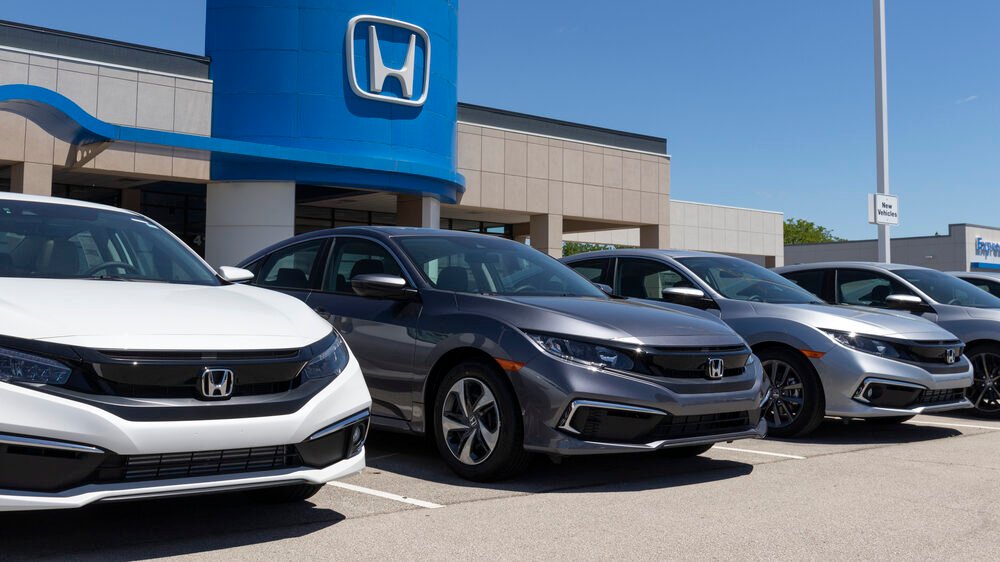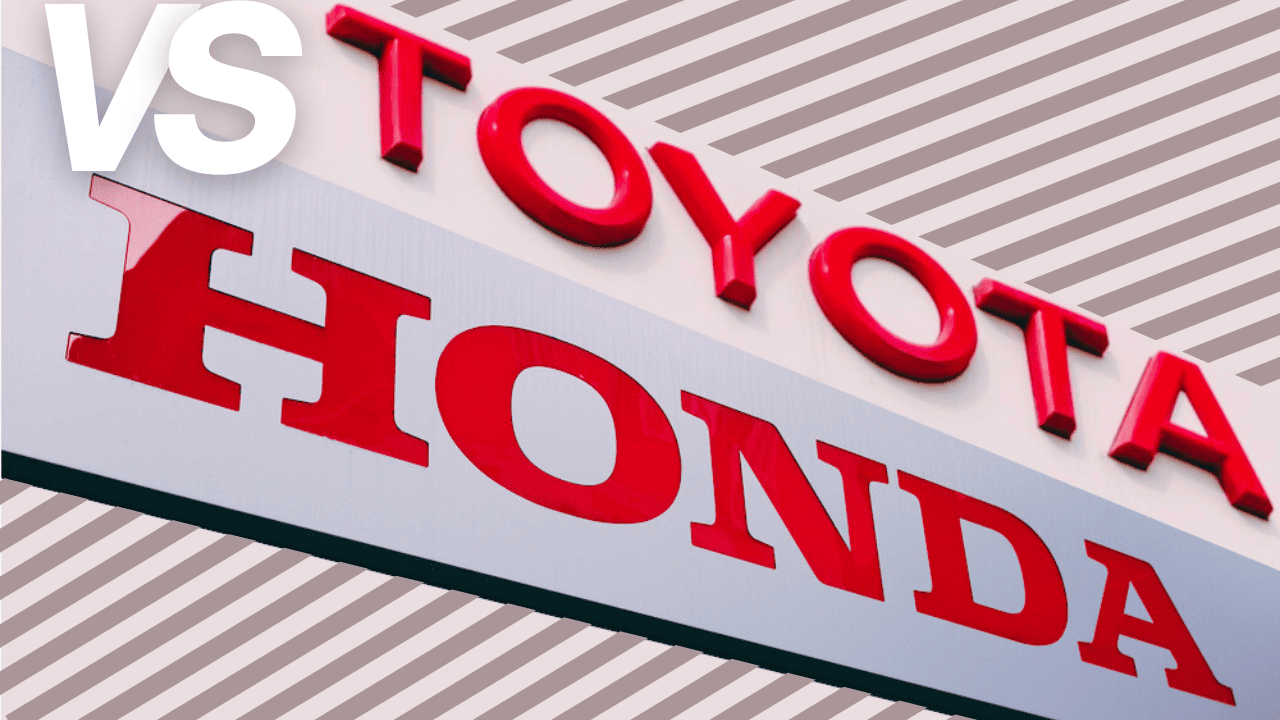Reliability is often the deciding factor for car buyers seeking peace of mind and low ownership costs. In the Japanese automotive landscape, Toyota and Honda stand out as leading brands with reputations built on dependable engineering, strong resale value, and high owner satisfaction.
But which one truly offers the better track record for reliability? Below is a data-driven analysis comparing Toyota and Honda across various metrics—ranging from historical context to modern engineering approaches—helping you discover which brand deserves the top spot for long-term dependability.
Historical Perspective: Two Titans of Reliability
Toyota’s Reliability Legacy
Toyota’s reputation for building reliable cars dates back to the 1970s, a time when the global market was shifting its focus to fuel efficiency and long-term durability. Models like the Corolla and Camry swiftly became benchmarks in their respective segments, bolstered by the company’s dedication to Kaizen (continuous improvement) and lean manufacturing practices. Over the decades, Toyota has refined its powertrains gradually, focusing on longevity rather than aggressive innovation.
Honda’s Rise to Prominence
Honda, initially well-known for its motorcycles, quickly gained a foothold in the passenger car market through models like the Civic and Accord in the early 1970s. By emphasizing efficient, well-engineered engines (e.g., its pioneering VTEC technology), Honda cemented its status as a reliability champion. The brand’s designs often blend performance and practicality, appealing to drivers who want both spirited driving and long-term dependability.
Manufacturing Philosophy and Engineering Ethos
Toyota: Conservative Powertrains and Lean Production
Toyota relies on tried-and-tested powertrain components for extended periods, making only incremental refinements to ensure consistency and reduce mechanical risks. This conservative approach means fewer radical shifts that could introduce new reliability problems. Toyota’s global production system also prioritizes minimal waste, strong supplier relationships, and real-time quality checks (like the Andon cord system) to address issues immediately.
Honda: Innovative Yet Balanced
Honda’s focus on engine technology stands out. By evolving its VTEC systems across successive generations, it achieves a fine balance between performance and reliability. Unlike some competitors that rapidly adopt unproven tech, Honda experiments cautiously, thereby maintaining its track record for robust powertrains.
Key Comparisons: Reliability Scores and Maintenance Costs
Below is a comparison table citing data from Consumer Reports and average estimated maintenance costs from aggregated sources like YourMechanic.
| Model | Brand | CR Reliability Score (2023) | Est. Annual Maintenance Cost | Notable Strengths |
|---|---|---|---|---|
| Toyota Camry | Toyota | 5/5 | $400–$480 | Strong resale, proven reliability |
| Toyota RAV4 | Toyota | 4/5 | $420–$500 | Practical, durable AWD options |
| Honda Accord | Honda | 4/5 | $450–$500 | Balanced engine, efficient design |
| Honda CR-V | Honda | 4/5 | $430–$520 | Great gas mileage, spacious interior |
Key Observations
- Both Toyota and Honda models maintain top reliability scores, frequently near the 4/5 or 5/5 range.
- Maintenance costs for the two brands remain quite similar, though Toyota occasionally edges out Honda in certain segments.
- Consumer Reports consistently places the Camry and CR-V at or near the top of their respective categories for long-term dependability.
Engineering Nuances: Powertrain and Technology
Engine Reliability
- Toyota: Known for conservative engine designs that often run reliably past 200,000 miles. Hybrids like the Prius have earned stellar longevity reputations, with many crossing 300,000 miles on original batteries.
- Honda: Emphasizes refined engine technologies, including i-VTEC and Earth Dreams powertrains that balance power and fuel economy. Numerous owners report Accords and Civics surpassing 250,000 miles with minimal major repairs.
Electronics and Software
- Toyota: Tends to adopt a restrained approach with infotainment and driver-assist features, which some critics argue lags behind competitors. However, fewer advanced software features often mean fewer electronic failures.
- Honda: Generally includes user-friendly infotainment systems and advanced driver-assistance tech (e.g., Honda Sensing). While software bugs occasionally occur, overall stability remains strong.

After-Sales Support and Service Networks
Parts Availability and Mechanic Familiarity
Both Toyota and Honda enjoy extensive global networks, making spare parts widely available and relatively affordable. Mechanics worldwide are adept at repairing these brands, thanks to their popularity and predictable design. Any difference in parts pricing or service complexity is usually small and model-specific rather than brand-wide.
Warranty Coverage
- Toyota: Offers a standard 3-year/36,000-mile limited warranty and a 5-year/60,000-mile powertrain warranty. Hybrid components often carry extended coverage of up to 8 years/100,000 miles (in the U.S.).
- Honda: Mirrors a similar warranty structure (3-year/36,000-mile limited and 5-year/60,000-mile powertrain). Honda also offers extended warranties at an additional cost, comparable to Toyota’s extended service contracts.
Real-World Anecdotes and Case Studies
Toyota Camry as a Taxi and Fleet Favorite
Many taxi operators and ride-share drivers gravitate toward the Toyota Camry for its lower operating costs and near-bulletproof engine reliability. Stories of 300,000-mile Camrys on original engines and transmissions are common in owner forums and fleet case studies.
Honda Civics Crossing 200,000 Miles with Ease
Honda Civics, especially models from the late 1990s and early 2000s, are notorious for surpassing 200,000 miles while retaining smooth performance. On CivicX Forums, numerous modern-generation Civics also report minimal mechanical issues, bolstering Honda’s dependable reputation.
Resale Value and Long-Term Ownership Costs
High Resale Value
Both Toyota and Honda top used-car value charts. The Kelley Blue Book consistently rates Toyota and Honda models at or near the top of each segment for resale. This retention is particularly visible in the small and mid-size sedan classes, where used Honda Accords and Toyota Camrys command a premium.
Depreciation Differences
While both brands maintain strong resale, Toyota vehicles often hold their value slightly better, thanks to an entrenched global perception of “unbreakable” reliability. Honda is a close second, but the gap can widen for models where Toyota has historically dominated, such as the RAV4 in the compact SUV market.
Insurance and Maintenance
Since insurance companies review reliability and repair costs, both Toyota and Honda enjoy generally moderate insurance rates. Maintenance is also straightforward: a well-maintained Corolla or Civic typically requires minimal unscheduled service visits, enhancing overall ownership satisfaction.
Pros and Cons of Each Brand
Toyota
Pros
- Consistent top-tier reliability across multiple decades
- Strong resale value in nearly every segment
- Conservative engineering that often means fewer mechanical failures
- Exceptional hybrid technology (e.g., Prius, Camry Hybrid)
Cons
- Less daring design, sometimes considered bland or outdated by enthusiasts
- Infotainment systems can lag behind in terms of features and user interface
- Some models may command a higher purchase price due to strong brand perception
Honda
Pros
- Innovative engine tech (VTEC) and well-balanced performance
- High marks for interior ergonomics and user-friendly layouts
- Respected reliability that rivals Toyota in most segments
- Slightly sportier ride quality in certain models (Accord, Civic)
Cons
- Lower brand loyalty in the hybrid segment when compared to Toyota’s pioneering stance
- Limited availability of advanced AWD systems (compared to Toyota or Subaru)
- Occasional software bugs in infotainment, though usually addressed via updates
Here’s another perspective on this comparison from our YouTube channel:
The Final Verdict: Which Is More Reliable?
When it comes to reliability, Toyota and Honda are virtually neck-and-neck. Both consistently secure top spots in consumer surveys and third-party reliability rankings, featuring robust powertrains and straightforward maintenance schedules. However, Toyota edges slightly ahead in a few areas, such as depreciation rates and the global perception of unwavering durability, especially for their hybrid models.
That being said, Honda admirers often highlight the brand’s innovative engine technology and engaging driving dynamics. Ultimately, the best choice hinges on personal preference—if you want rock-solid familiarity and a proven hybrid system, Toyota might fit best. If you prefer a touch more performance flair in your daily commute, Honda can be equally rewarding while retaining superb reliability.
Key Takeaways
- Close Race: Toyota and Honda both lead the industry in reliability, with minimal difference in maintenance costs.
- Hybrid Leadership: Toyota’s extensive hybrid lineup generally outperforms competitors in long-term dependability.
- Sporty Touch: Honda offers slightly more spirited driving, courtesy of its engine technology and chassis tuning.
- Resale and Depreciation: Toyota usually retains value marginally better, although Honda’s resale remains very high.
Choosing between Toyota and Honda often boils down to nuances in driving experience, design preferences, and feature sets. Whichever route you take, you’ll be investing in a car known for decades of reliable service—a testament to the solid reputation both brands have painstakingly built.
If you enjoyed this post, you might also like our article, “Top 10 Longest Lasting SUVs You Can Buy Today.“ Explore our site for in-depth car reviews, expert buying advice, and the latest industry news. Feel free to look around, and don’t forget to bookmark our homepage for future updates!
*Disclaimer: This website provides automotive content for informational purposes only and should not be considered professional advice. While we strive for accuracy, we do not guarantee the reliability or suitability of any vehicle or product mentioned—always conduct your own research before making purchasing decisions. Additionally, some links on this site are affiliate links, meaning we may earn a commission if you make a purchase, at no extra cost to you.

